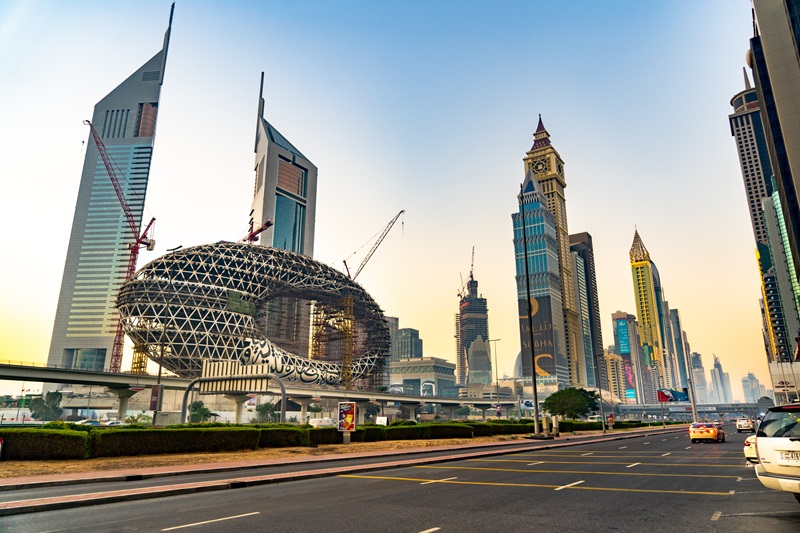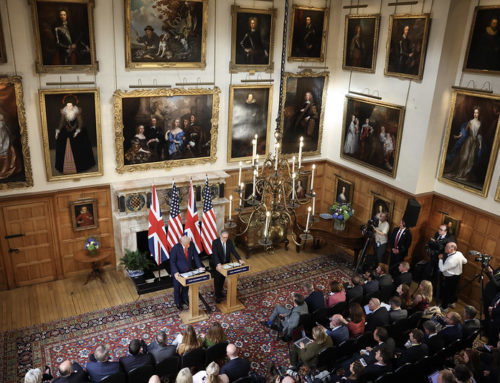1. UK’S Global Investment Summit a success
At the recent Global Investment Summit, held on November 27, 2023, some of the world’s most influential investors and pioneering British innovators gathered to discuss exciting opportunities for growth in the UK. More than 200 leading CEOs attended this exclusive summit, which showcased the UK as a prime destination for business and strategic investment across various sectors.
Some key highlights from the summit:
- Prominent Attendees:
– Stephen Schwarzman, CEO of Blackstone (the world’s largest alternative asset manager), joined Prime Minister Rishi Sunak for a keynote panel discussion. They emphasized the importance of investing in skills and technology that will shape the coming decades.
– Anya Hindmarch CBE, CEO and Founder, participated alongside other voices from culture, academia, fashion, and science to showcase UK talent globally.
- Innovations on Display:
– The summit highlighted pioneering innovations in various fields, including AI, quantum technology, agri-tech, clean growth, advanced manufacturing, life sciences, and fashion. These businesses demonstrated the UK’s unique offerings to potential investors.
- Major Investors:
– Notable investors attending the event included:
– David Solomon, Chief Executive of Goldman Sachs
– Amanda Blanc, CEO of Aviva
– Ignacio Galán, Chairman of Iberdrola
– Jamie Dimon, CEO of JP Morgan Chase
- Sponsorship:
– The UK’s largest banks—Barclays, HSBC, and Lloyds Bank—supported the summit as sponsors and principal partners.
The Global Investment Summit aimed to secure billions of pounds in valuable investment, driving economic growth and job creation across critical sectors in the UK. Jointly hosted by the Prime Minister and the Department for Business and Trade, the summit celebrated “Great British Ideas—Past, Present, and Future,” showcasing Britain’s strengths on the global stage.
Since the event Sunak has announced £29.5 billion in investment commitments from Australia, Spain, UAE, the US and Switzerland.
2. Gulf Cooperation Council – UK trade talks

Image darcey beau via unsplash
The Gulf Cooperation Council (GCC), comprising six Arab states—Bahrain, Kuwait, Oman, Qatar, Saudi Arabia, and the United Arab Emirates (UAE)—has long been a pivotal player in the geopolitics of the Middle East. Simultaneously, the United Kingdom has maintained historical ties with the region, shaped by trade, diplomacy, and shared interests.
In this article, we delve into the multifaceted relationship between the GCC and the UK. From economic collaborations to security cooperation, we explore how these two distinct entities intersect and influence each other. Join us as we unravel the threads that bind the Arabian Gulf and the British Isles, tracing their past, present, and future connections.
Certainly! The relationship between the Gulf Cooperation Council (GCC) and the United Kingdom (UK) is multifaceted, spanning economic, security, and diplomatic dimensions. Here are some key aspects of their partnership:
- Trade and Economic Ties:
- The UK has a close trading relationship with the GCC. In 2021, the two parties concluded a trade review, expressing their intention to establish a trading agreement.
- The UK government estimates that a comprehensive Free Trade Agreement (FTA) with the GCC could add £1.6 billion annually to the UK economy in the long run.
- Recent Ministerial Meeting (September 2023):
- In September 2023, the foreign ministers (or their representatives) of GCC member states met with UK Minister James Cleverly, Secretary of State for Foreign, Commonwealth and Development Affairs, along with GCC Secretary General Jasem Albudaiwi.
- They discussed regional and global issues, reviewed progress on the GCC-UK Strategic Partnership, and strengthened consultation, coordination, and cooperation across various fields.
- Key topics included regional de-escalation, adherence to international law, freedom of navigation, and maritime security.
- Both parties emphasized their commitment to addressing threats to sovereignty, territorial integrity, and international security.
The Gulf Cooperation Council (GCC) and the United Kingdom (UK) have been actively pursuing a free trade agreement (FTA) to enhance economic ties and foster collaboration. Here are the key points regarding this significant development:
- Strategic Rationale:
- The UK government recognizes the strategic importance of strengthening economic relations with the GCC member states—Bahrain, Kuwait, Oman, Qatar, Saudi Arabia, and the United Arab Emirates (UAE).
- An FTA with the GCC would create substantial economic opportunities and deepen bilateral cooperation.
- Expected Impact:
Government analysis indicates that a successful FTA between the UK and the GCC could:
- Increase trade by at least 16%.
- Add at least £1.6 billion (approximately $1.98 billion) annually to the UK economy.
- Contribute an additional £600 million or more to the UK economy in the long run.
- Negotiations:
The UK has engaged in multiple rounds of negotiations with the GCC to establish the terms of the FTA. The third round of talks took place in March 2023 in the Saudi capital, Riyadh.
- Current Status:
As of now, the UK does not have a free trade agreement with any of the GCC countries. However, both parties remain committed to exploring mutual benefits through this trade partnership.
In summary, the GCC-UK free trade agreement holds immense potential for boosting economic growth, facilitating cross-border investments, and strengthening ties between the Arabian Gulf and the UK.
3. Doing Business in India: A Guide for International Companies

Image laurentiu morariu via unsplash
India offers enormous opportunities for UK companies looking to expand abroad. However, it’s essential to recognize that India is not a single market but a series of interconnected regional markets, each with its own legislative and investment climate. Here are the key areas to consider:
- Understanding the Market:
Research the Indian market thoroughly. Understand consumer behaviour, demographics, and trends specific to different regions. Identify potential competitors and assess market demand for your product or service.
- Business Culture:
Familiarise yourself with Indian business customs, communication styles, and etiquette. Building strong relationships is crucial. Networking and personal connections play a significant role in business success.
- Market Entry Structures:
Evaluate the most relevant entry strategy for your business. Options include joint ventures, wholly-owned subsidiaries, or partnerships. Consider local laws, government incentives, infrastructure, and workforce availability when choosing a location.
- Building Your Team:
Recruit skilled professionals who understand the local market and culture. Invest in training and development to bridge any cultural gaps.
- Finding Customers:
Develop a robust marketing and sales strategy. Leverage digital platforms and local media. Understand consumer preferences and adapt your offerings accordingly.
- Managing Finances:
Establish banking relationships in India. Comply with tax regulations and currency exchange norms.
- Legal Considerations & Incentives:
Consult legal experts to navigate Indian laws related to company registration, intellectual property, labour, and taxation. Explore government incentives for foreign investors.
- Supporting Networks:
Join industry associations, chambers of commerce, and business forums. Seek guidance from experienced professionals who have successfully operated in India.
Top Three Tips for Doing Business in India:
- Location Matters:
Compare local laws, infrastructure, government incentives, and workforce availability when choosing a business location. Finding the right partner for your product or service is often crucial.
- Evaluate Entry Strategies:
Assess the best market entry structure to minimize risks and optimize sustainability. Consider joint ventures, subsidiaries, or other models based on your business goals.
- Size Doesn’t Matter:
Success in India is not limited to large corporations. Companies of all sizes and sectors can thrive. Learn from examples like Vodafone and Tesco, who have successfully entered the Indian market.
Remember, India’s business landscape is dynamic, so staying informed and adaptable is key. Seek advice from experts and leverage local knowledge to navigate this exciting market.
4. Vietnam multinationals tax up to 15%

Image jet dela cruz via unsplash
Vietnam has approved 15% tax on multinational corporations. Here are the key details:
- Resolution Approval:
Vietnam’s National Assembly passed a resolution to implement the global minimum tax. This initiative aligns with the agreement reached by G7 countries in June 2021. The new tax rate will be 15% and is set to take effect from January 1, 2024.
- Targeted Corporations:
The global minimum tax primarily targets multinational corporations with consolidated total revenue of approximately $800 million or more over a span of the closest four years. Among these corporations, Samsung, which generates billion-dollar revenues from its Vietnamese factories, is expected to shoulder a significant portion of this additional tax.
- Revenue Impact:
The new tax rate is anticipated to generate over 14.6 trillion VND annually from 122 foreign-invested companies in Vietnam. The Korean Chamber of Commerce in Vietnam has expressed concerns, but no major modifications to investment strategies have been indicated.
- Preparing for Disputes:
The Vietnamese government is urged to prepare for potential disputes, as some companies may prefer paying the tax to their home countries. To address this, the Vietnamese National Assembly has tasked the government with drafting a decree in 2024 to establish an investment support fund.
- Investment Support Fund:
The fund, sourced from the global minimum tax and other legitimate sources, aims to stabilize the investment environment. It will attract strategic investors, support multinational corporations, and encourage domestic businesses in key investment sectors. These collective efforts are expected to foster a robust and dynamic investment landscape in Vietnam.
5. Alabama To Build $30M EV, Emerging Tech Training Center

Image david lundgren via unsplash
Alabama is set to become a hub for electric vehicles (EVs) and emerging technologies with the construction of a state-of-the-art $30 million workforce training center. This facility, located on the Alabama Robotics Technology Park campus in Decatur, aims to bolster the state’s automotive industry and equip the workforce with the skills needed for the future.
Key Details:
Purpose: The training center will focus on electric vehicles and cutting-edge technologies.
Location: Alabama Robotics Technology Park campus.
Size: The facility is projected to span 40,000 square feet.
Timeline: It is expected to be operational within 18 to 24 months.
Design: Goodwyn Mills and Cawood (GMC), based in Montgomery, Alabama, will design the training centre.
Government Support: The funding for this project was approved in the most recent session of the state legislature.
Why Alabama?
- Workforce Development: Alabama is already a recognized leader in workforce development. This training center will add an important dimension to the state’s capabilities, focusing specifically on EVs and new technologies.
- Automotive Industry Growth: As Alabama’s status in the automotive industry continues to grow, workforce development becomes crucial. The center will ensure that the state keeps up with industry advancements.
- Gold Standard: The Alabama Robotics Technology Park has long represented the gold standard for workforce training. It’s the perfect home for this new facility, which will focus on advanced automotive technologies.
Three Tips for Doing Business in Alabama:
- Location Matters: Compare local laws, infrastructure, and workforce availability when choosing a business location.
- Evaluate Entry Strategies: Assess the best market entry structure to minimize risks and optimize sustainability.
- Size Doesn’t Matter: Success in Alabama is not limited to large corporations. Companies of all sizes and sectors can thrive.
This investment demonstrates Alabama’s commitment to becoming an even greater force in the global auto industry. As the facility takes shape, it will play a pivotal role in shaping the future of EVs and emerging technologies in the state.
Featured image Chris Lawton via Unsplash







